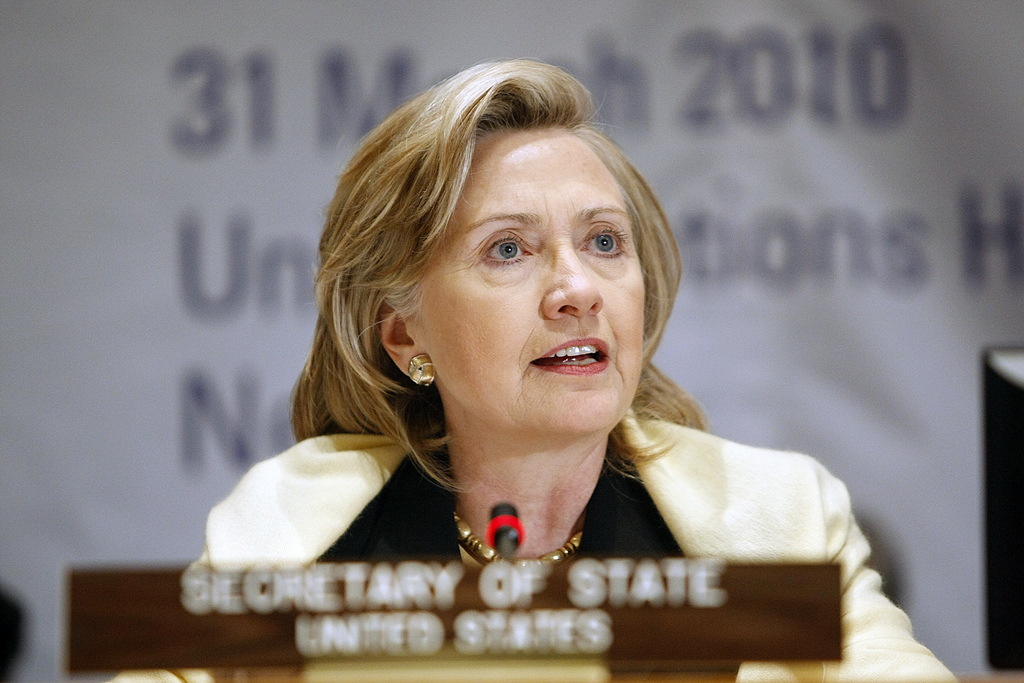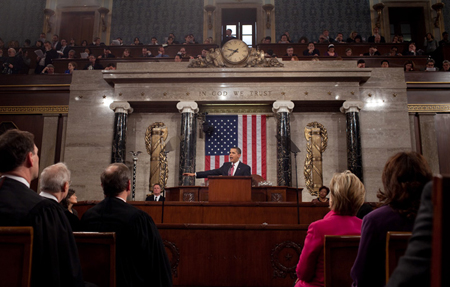October 26, 2010 marked the ten-year anniversary of the passing of United Nations Security Council Resolution 1325 (UN SCR1325) yet the United States had not taken any substantial action to promote the text domestically or internationally. The resolution encompasses several massive issues concerning women in the peacemaking process in a brief, three-page document.
It states that member countries should encourage increased female representation in decision-making state institutions, acknowledges different ways that women can be affected by conflict, and provides suggestions to combat these plights.[1] This includes issues that range from domestic violence to the use of rape as a weapon of war. Later Security Council resolutions 1820, 1888, 1889, 1960 expand upon these issues, and all together constitute what is called the Women, Peace, and Security (WPS) agenda.[2]
Because of the focus on conflict-ridden areas, it is easy to overlook UN SCR1325’s applicability to developed states without violence on their soil. However, it is crucial that the United States works to further gender equality by examining its own areas of weakness and determining subsequent actions for implementation. Those areas most certainly exist–even here. The recommendation in UN SCR1325 to encourage the involvement of women in “all decision-making levels in national, regional and international institutions and mechanisms for the prevention, management, and resolution of conflict” can certainly be applied to a nation where women make up only 17 percent of the federal congress.[3] Additionally, figures reported by the Bureau of Justice in April 2011 indicate that hundreds of women are victims of sex trafficking domestically every year.[4] These numbers only reflect reported incidents. The concept that a connection exists between these two types of gender concern is one of the most significant aspects of the WPS agenda.
Furthermore, the United States is unquestionably a country that has consistently been involved in conflicts across the globe. Since 1950, more than 50 countries have hosted at least 1,000 U.S. troops at once; U.S. commitment to the WPS agenda could result in a tangible, grassroots change where violence does occur.[5] Finally, the United States’ standing as a large, developed nation makes its progressive action inherently significant for the international community. U.S. commitment to these ideas is domestically necessary, and internationally progressive.
To actively support the resolution, UN member states have been encouraged to create National Action Plans (NAPs) to develop a specific design for implementation within their country. To date, 26 countries have developed NAPs for UN SCR 1325.[6] Though the United States has not created a NAP, future progress is imminent; last October in commemoration of the tenth anniversary, Secretary of State Hillary Clinton called the WPS agenda a “necessary global security imperative.”
She showed support for UN SCR1325 by stating, “just as in the economic sphere, we cannot exclude the talents of half the population, neither when it comes to matters of life and death can we afford to ignore, marginalize, and dismiss the very direct contributions that women can and have made.”[7]
Secretary Clinton then announced a pledge of $44 million towards the empowerment of women globally and a commitment to the creation of a U.S. NAP, to be unveiled within twelve months. The State Department has since been preparing its NAP, and is nearing the October 2011 deadline–so what should be expected from these policies? Though Secretary Clinton stated last October that the NAP will accelerate implementation “across our government and with our partners in civil society,” she spoke more globally about the issues involved, rather than domestically.
After initially claiming that implementation will affect internal government institutions, she did not expand on internal changes but instead concluded her brief statement with a broad description of performance metrics for women’s rights policies. “We will measure whether women are effectively represented in the full range of peace-building and reconstruction efforts; whether they are protected against sexual violence; and whether they are the focus of conflict prevention, relief and reconciliation efforts,” she said. [8]
Civil society organizations, like the U.S. Section of the Women’s International League for Peace and Freedom (WILPF), seem to think that the international focus will extend into the NAP and that domestic gender inequalities will be ignored where they should not be.[9] WILPF is holding discussions with the State Department and other relevant civil society groups in September and October 2011 as a last-minute attempt to improve NAP design.
In order to effectively utilize the opportunity with the development of the NAP, the State Department must first address domestic gender issues and then encourage these ideals globally. The United States cannot hold moral high ground internationally if it does not combat injustices internally. What will ultimately be included in the NAP remains to be seen.
In the United States’ international moral high ground will slowly deteriorate if their inability to combat these injustices on the domestic level continues to fail. The issue of gender is an opportunity to incorporate the NAP of an international issue to push the domestic agenda. We owe this to ourselves not only as a platform for the pursuit of the problem on the international level, but also as a signatory of the resolution designed to remedy it.
[1] “Resolution 1325 (2000),” United Nations Security Council, accessed September 28th, 2011, http://www.un.org/events/res_1325e.pdf.
[2] “Statement on U.S. SCR 1325 National Action Plan Development,” Women’s International League for Peace and Freedom, U.S. Section, accessed September 28th, 2011, http://www.wilpf.org.
[3] “The United States Congress Quick Facts,” last updated 28 August 2011, http://thisnation.com/congress-facts.html.
[4] “Characteristics of Suspected Human Trafficking Incidents, 2008-2010,” U.S.Department of Justice, accessed September 30, 2011, http://bjs.ojp.usdoj.gov/content/pub/pdf/cshti0810.pdf.
[5] “Global U.S. Troop Deployment, 1950-2003,” The Heritage Foundation, accessed September 29, 2011, http://www.heritage.org/Research/Reports/2004/10/Global-US-Troop-Deployment-1950-2003.
[6] “Statement on U.S. SCR 1325 National Action Plan Development.”
[7] “Remarks at the 10th Anniversary of UN Security Council Resolution 1325 on Women, Peace and Security,” U.S. Department of State, accessed September 28th, 2011, http://www.state.gov/secretary/rm/2010/10/150010.htm.
[8] I.b.i.d.
[9] “Statement on U.S. SCR 1325 National Action Plan Development.”



